Can You Get A Perm While Pregnant?
Take these safety precautions while ensuring your hair stays perfect throughout those 9 months.

Image: Shutterstock
When you are expecting a child, it becomes obvious to be doubly sure about your baby’s safety and yourself. And the same goes for perming while pregnant, as it involves chemicals and heat treatment.
Perming is done to give curly texture to your hair. A hairstylist will wrap your hair in rods before putting perm lotion to set the curl. But, can a pregnant woman do it? What is the scientific community’s stand on it? In this article, we will answer all your questions regarding perming. Read on.
In This Article
What Does Research Tell Us About Perming And Pregnancy?
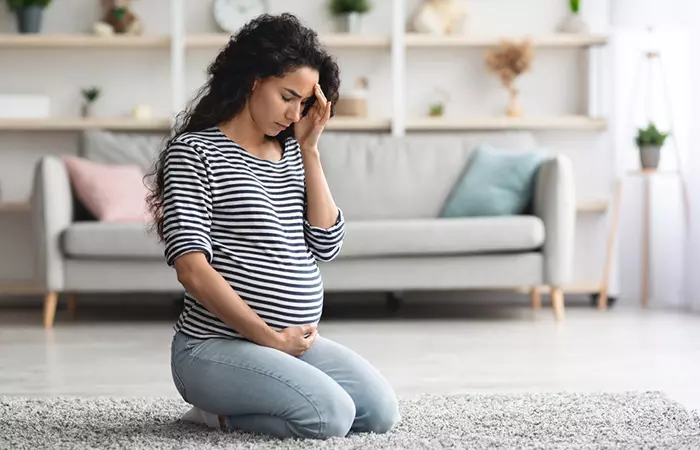
There are no clinical studies about how hair perming affects the fetus. Most anecdotal evidence suggests that perming your hair while pregnant does not harm the fetus. It is widely believed that your body does not absorb the chemicals used in hair perming or coloring. So, it is safe to perm your hair during pregnancy if you follow all the precautions carefully.
- Hormonal Changes
Hormones during pregnancy play a role in hair growth
(1). Hair growth in pregnant women varies from person to person. While some experience thick hair growth, others may lose hair. There is a slight chance that these changes in hormones and hair growth may affect the results of perming your hair.
- Possible Side Effects
The products used in perming can cause side effects, though there is a lack of scientific data regarding this. It can trigger nausea and migraines in expecting mothers due to their increased sensitivity to smells (2). However, increased exposure to or multiple sessions with these chemical-based processes may have a negative impact on the development of the fetus. But again, there is no scientific evidence to prove the same.
- Allergic Reactions
It is recommended to check for allergies before perming your hair as pregnancy can trigger reactions that you did not previously experience.
You can do a small patch test before you proceed with the procedure.
So, there is no scientific data claiming that perming your hair can affect your pregnancy. Does that mean you can go ahead with this hair treatment? Find out the safety concerns and risks involved in the next section.
Key Takeaways
- It is safe to perm your hair during pregnancy. However, your hormones may cause changes in your hair growth that may affect the perming results.
- The chemicals used during perming may trigger nausea, migraine, or allergic reactions due to increased sensitivity.
- There are four different types of perm you can get: body wave, spiral, digital, and spot perm.
- Other ways to change your look during pregnancy include getting a haircut, using natural dyes, and using non-toxic hair colors.
Is It Safe To Perm Your Hair During Pregnancy?
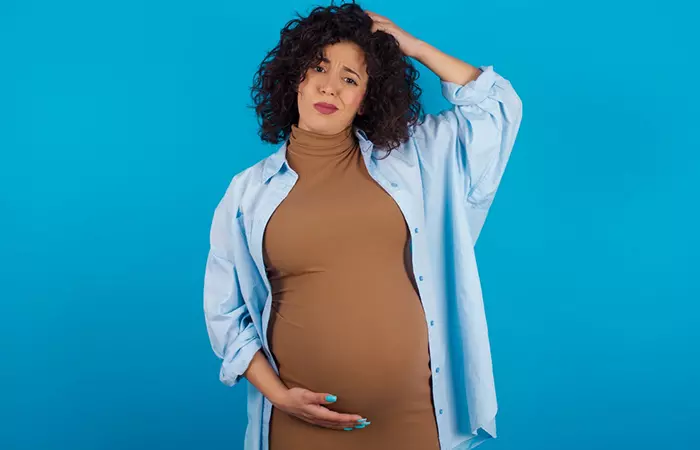
Yes, you can perm your hair during pregnancy. It is generally considered a safe treatment. However, it is recommended to wait until after the first trimester because there is a small risk of perming chemicals being absorbed through the scalp and affecting the fetus. Although not scientifically proven, it is better to be cautious and perm after the first three months. Dr. Michael May, MD, a hair transplant surgeon, also agrees to it. He says, “There are not many studies about the safety of perming as well as the use of relaxers while pregnant. However, it is generally safe to perm hair as long as you reduce the risk of harsh chemicals affecting the fetus in the womb. Remember to wait for the second or third trimester. The highest risk of miscarriage is during the first trimester, so you might as well refrain from getting hair treatments during these early months of pregnancy and delay your perming schedule.”
Thus, it is better to be cautious and show concerns when you perm your hair during pregnancy. Follow all safety protocols and limit your exposure to chemicals during the procedure. He adds, “If you are doubtful about using chemicals and want to look your best with curls, you might want to use hair rollers. You can also plug in your curling iron (but remember to regulate your use of heat devices as they may damage your hair strands).”
Kia Emmanuel, a lifestyle vlogger who shares her and her family’s life on YouTube, confirmed that you can perm while pregnant. She mentions in a video that she had done it during her pregnancy and had not experienced any issues. She says, “I’ve done it with each one of my pregnancies. There is nothing wrong with relaxing your hair while pregnant. Although, I would suggest only doing it when you really really really need to (i).”
Perming is generally safe during pregnancy. Just remember you choose the right place to get your hair permed. Ensure your salon is well-ventilated to prevent inhaling excessive gas and overheating. Additionally, inform your stylist about your pregnancy before the treatment so that they can take necessary precautions. If you need help understanding what kind of perm to get, read on to understand which type offers what kind of benefits.
 Trivia
TriviaTypes Of Perms
Here are the different types of perms:
- Body Wave Perm: Adds loose and natural-looking waves throughout the hair. It is suitable for adding movement and bounce to straight hair.
- Spiral Perm: Adds voluminous and tightly-defined curls. It is suitable for those who want tight curls.
- Digital Perm: Uses hot rods with a digital setting, allowing for customized, natural-looking curls. Digital perms are often used for Asian hair types.
- Spot Perm: Adds curls or waves to certain hair sections such as the ends or layers.
You can learn about different types of perms in detail here. If you are still hesitant about getting a perm while pregnant, consider a few alternatives. Learn more below.
Alternatives For Hair Perming During Pregnancy To Change Your Look
1. Get A Haircut
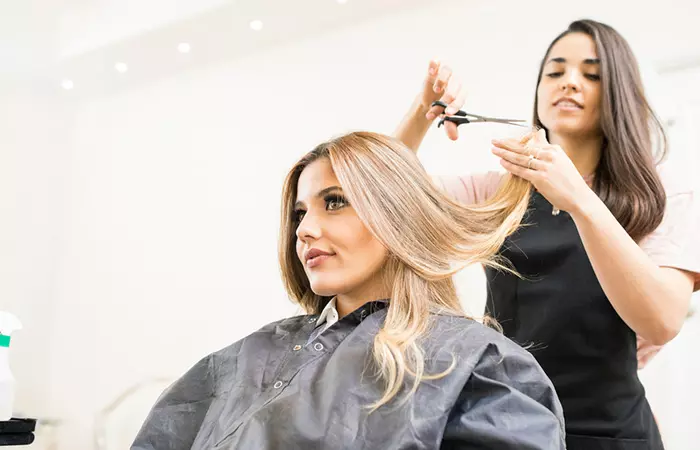
Your safest bet is to get a new haircut! This does not involve the use of any chemicals, so the risk to you or your baby is zero. Haircuts can transform your look and boost your confidence. Getting a low-maintenance haircut will also cut down on your styling and grooming time. With a haircut you can try some new hairstyles and prevent the need for perm upkeep during and after your pregnancy – giving you some much-needed breathing space,peace of mind and accentuating your natural beauty.
2. Use Organic Dyes
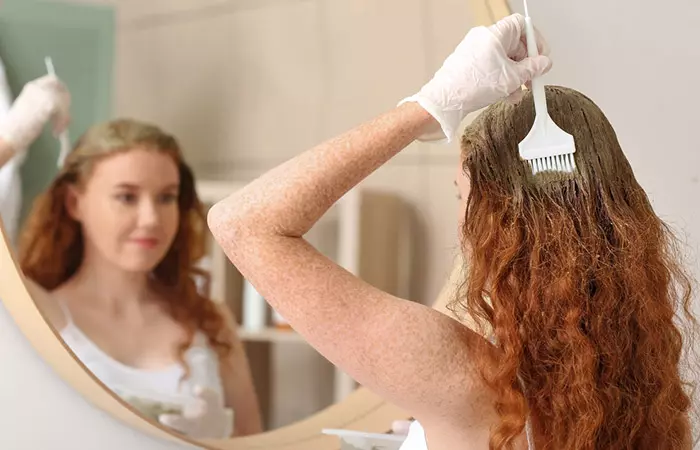
Try dyeing your hair with Indigo henna. It has traditionally been used in Asia to cover grays and add rich copper-red tones to the hair. It is completely natural as it is sourced from a plant that stains the hair red when it reacts with the hair pigments. Since henna is safe, it is also used to adorn pregnant bellies as henna tattoos. And to use henna you don’t even need to visit a salon, now you can color your hair in the comfort of your home. You can also use organic dyes devoid of harsh chemicals such as PPD and ammonia.
3. Color Your Hair
Hair dyes are considered safe to use during pregnancy. You will have a variety of styling options to pamper yourself. You can experiment with different colors and styles.
 Quick Tip
Quick TipMost of the chemicals in the hair colors currently on the market are non-toxic. However, it is important to remember that most chemicals can be toxic and detrimental to your health at high levels. Even treatments labeled as natural or organic may not be completely safe and affect negatively during your maternity period. Also, avoid hair dyes with ammonia or hair treatments that use harsh chemicals, because fashion should not be on the priority list when your health might be at risk.

We recommend semi-permanent dyes over permanent dyes during pregnancy. Since there is a minute chance that the chemicals may get absorbed by the scalp and cause some health issues, avoid the roots while dyeing your hair.
Talk to your stylist and explore your options to change up your look. There are many styles you can try:
- Ombre
- Balayage
- Highlights
- Frosted tips
Although we recommend you get your hair dyed professionally, it may not always be possible when you are pregnant. You can seek help from your spouse or a friend as the process can be time-consuming and tiring. Please follow the manufacturer’s instructions. We have also listed some important safety tips to help you if you decide to color your hair at home:
- Use gloves throughout the whole procedure.
- Open all the windows in the room to keep it well-ventilated.
- Limit the number of times you color your hair during pregnancy.
- Avoid the scalp while you apply color.
- Do not leave the dye in your hair longer than as indicated on the box.
- Use a color-safe shampoo and conditioner for effective and long-lasting results.
Infographic: Safety Of Perming During Pregnancy And Alternatives
Perming is the most effective way to get defined curls. While they are safe in general, are they also safe during pregnancy? Read on to find out. Also, get to know about alternatives for a changed look when pregnant. Check out the below infographic for more information.

Illustration: StyleCraze Design Team
You can experiment with your hairstyle and get a perm while pregnant. While it is generally considered safe, one can’t help but wonder – are perms bad for your hair in the long run during a pregnancy? The answer depends on various factors, including your hair type and the chemicals used. However, be cautious and avoid it during the first trimester. Consult your doctor to understand the associated risks and go for it only when they give the go-ahead. If perming your hair makes you feel uncomfortable, don’t worry. You can still change the look of your hair by trimming or coloring it, as long as you use natural, and non-toxic products and follow all safety protocols. Always consult your obstetrician and hairstylist to avoid any risks and side effects.
In short, avoid hair coloring and perming during the first trimester completely. Discuss the benefits and side effects with your obstetrician and go ahead only if they permit. If not very urgent, avoid these treatments.
Illustration: Is it Safe To Perm Hair During Pregnancy? Know the Truth Here
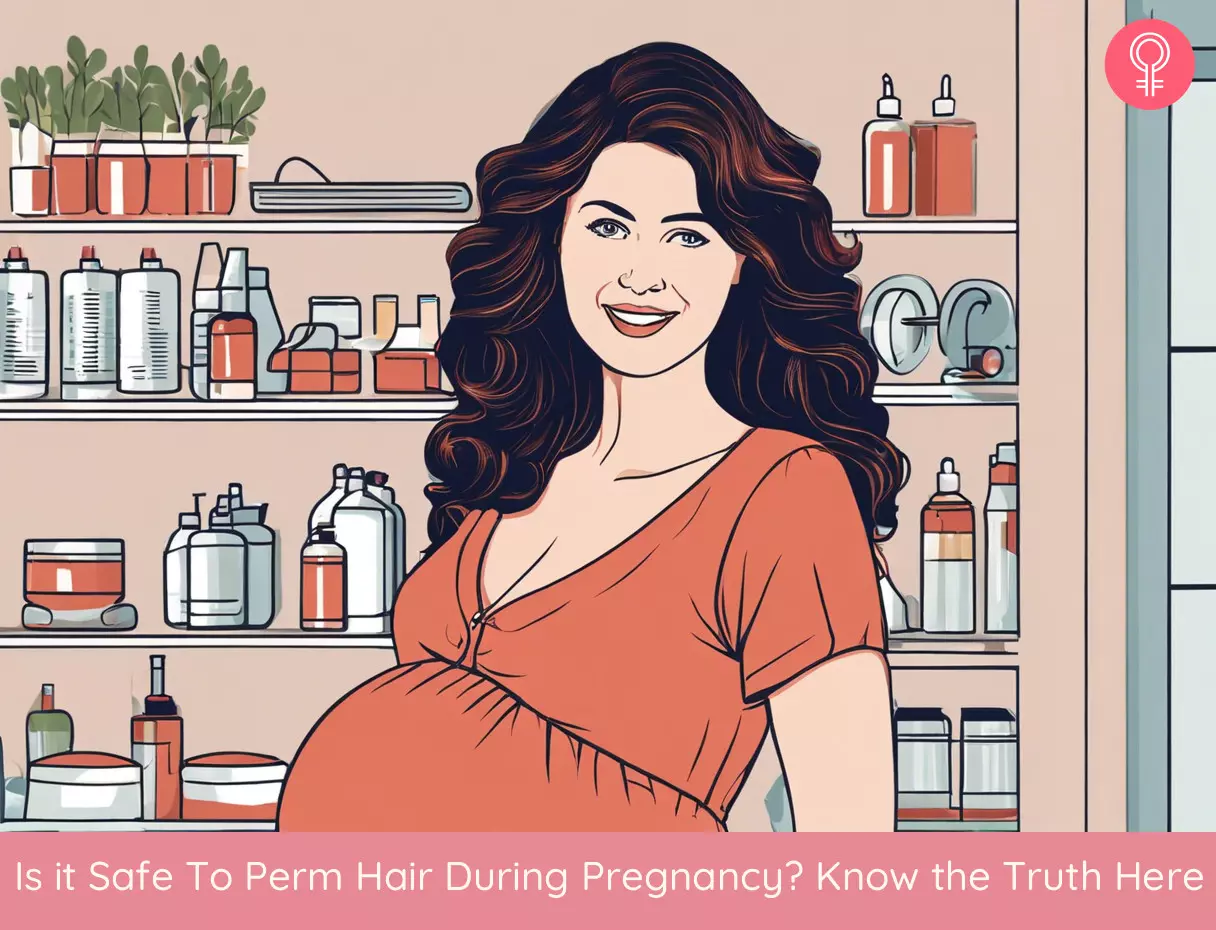
Image: Stable Diffusion/StyleCraze Design Team
Frequently Asked Questions
What should I discuss with my doctor before perming my hair during pregnancy?
Discuss with your doctor regarding any allergies and sensitivities that you may have to chemicals found in perm solutions. Additionally, learn if the gases can trigger any respiratory problems and whether the chemicals can irritate your scalp during pregnancy.
Can I perm my hair at 6 months pregnant?
Yes, you can perm your hair when you are 6 months pregnant.
Can you perm or dye your hair while pregnant?
The chemicals in perm solutions and dyes are not strong enough to affect your body or pregnancy. But, it is recommended not to use these products during the first three months of pregnancy.
How long after having a baby can I get a perm?
As the chemicals in perm solutions are not strong enough to affect your health, you can get a perm right after childbirth. However, it is recommended to wait for at least a week or two after giving birth.
Can you get a perm if you are breastfeeding?
Yes, you can get a perm even if you are breastfeeding.
How do I choose a hair stylist for a perm while pregnant?
Do your research to find an experienced hair stylist who has catered to pregnant women and is well aware of the risks of chemical exposure during pregnancy. Also, talk to your doctor about the safety of perming during your pregnancy.
What are the best types of perm solutions for pregnant women?
Opt for a no-lye perm solution that has minimum processing time. These are more gentle on the scalp and would be more suitable for use during pregnancy. Also, try to avoid perm solutions that contain toluidines, since these chemicals are proven to be carcinogenic.
How long after giving birth should I wait before getting a perm?
There is no scientific evidence that states a waiting period after childbirth to get a perm. Hence, if you are not sensitive to the smell of the perming solution, it is fine to get one done immediately after your delivery.
References
Articles on StyleCraze are backed by verified information from peer-reviewed and academic research papers, reputed organizations, research institutions, and medical associations to ensure accuracy and relevance. Read our editorial policy to learn more.
- Effect Of Pregnancy On The Human Hair Cycle
https://core.ac.uk/download/pdf/82326339.pdf - Pregnancy and olfaction: a review
https://www.frontiersin.org/journals/psychology/articles/10.3389/fpsyg.2014.00067/full
Read full bio of Dr. Saloni Vora-Gala
- Dr. Michael May, MD, is the Medical Director and Principal Surgeon of the Wimpole Clinic in Harley Street, London. He has 25 years of experience in the field of hair transplant surgery and has completed over 10,000 hair transplant procedures. He is the current president of the European Society of Hair Restoration Surgery, a registered member of The Trichological Society, and a Diplomat of Hair Restoration Surgery (ABHRS).
 Dr. Michael May, MD, is the Medical Director and Principal Surgeon of the Wimpole Clinic in Harley Street, London. He has 25 years of experience in the field of hair transplant surgery and has completed over 10,000 hair transplant procedures. He is the current president of the European Society of Hair Restoration Surgery, a registered member of The Trichological Society, and a Diplomat of Hair Restoration Surgery (ABHRS).
Dr. Michael May, MD, is the Medical Director and Principal Surgeon of the Wimpole Clinic in Harley Street, London. He has 25 years of experience in the field of hair transplant surgery and has completed over 10,000 hair transplant procedures. He is the current president of the European Society of Hair Restoration Surgery, a registered member of The Trichological Society, and a Diplomat of Hair Restoration Surgery (ABHRS).
Read full bio of Annie Jangam
Read full bio of Eshna Das
Read full bio of Swathi E







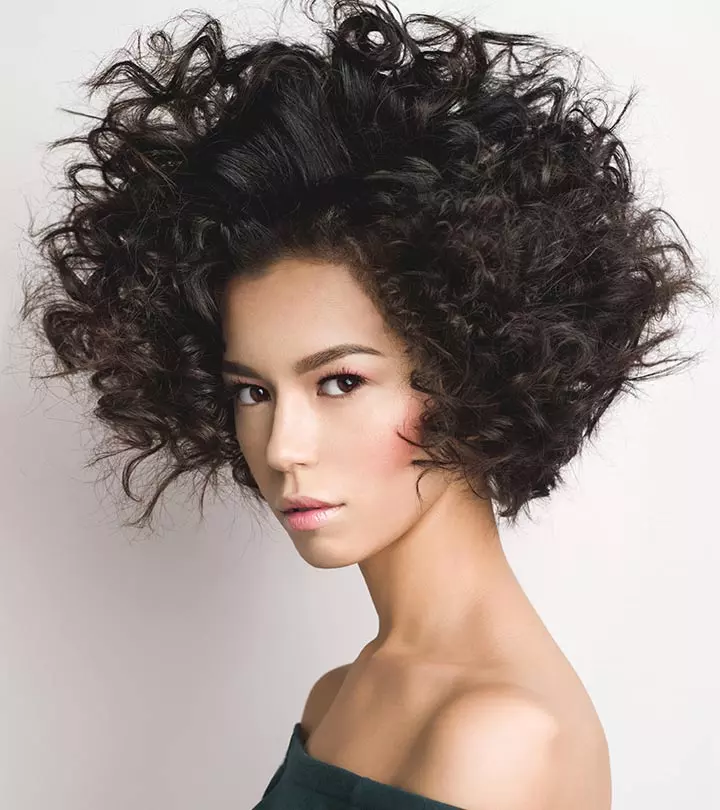
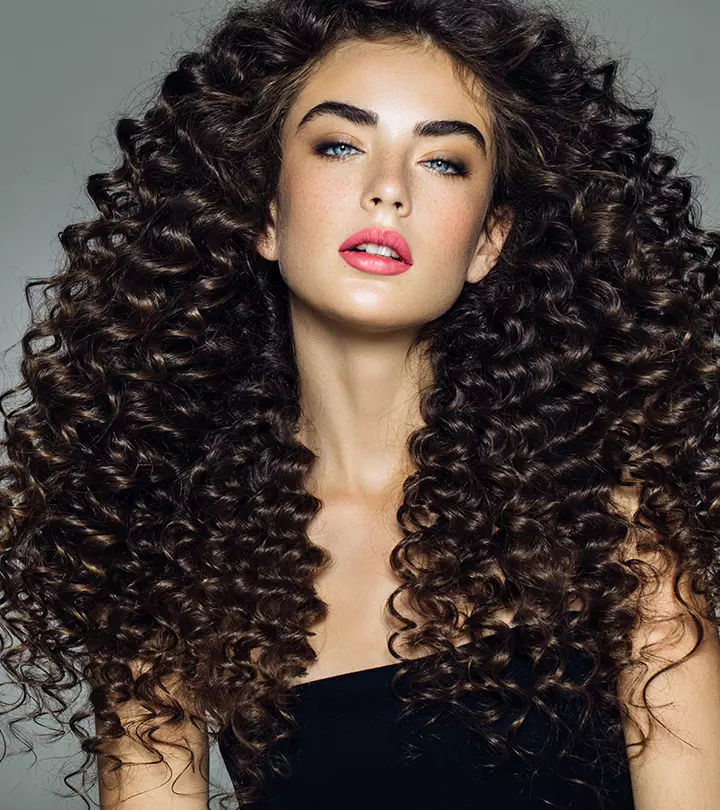

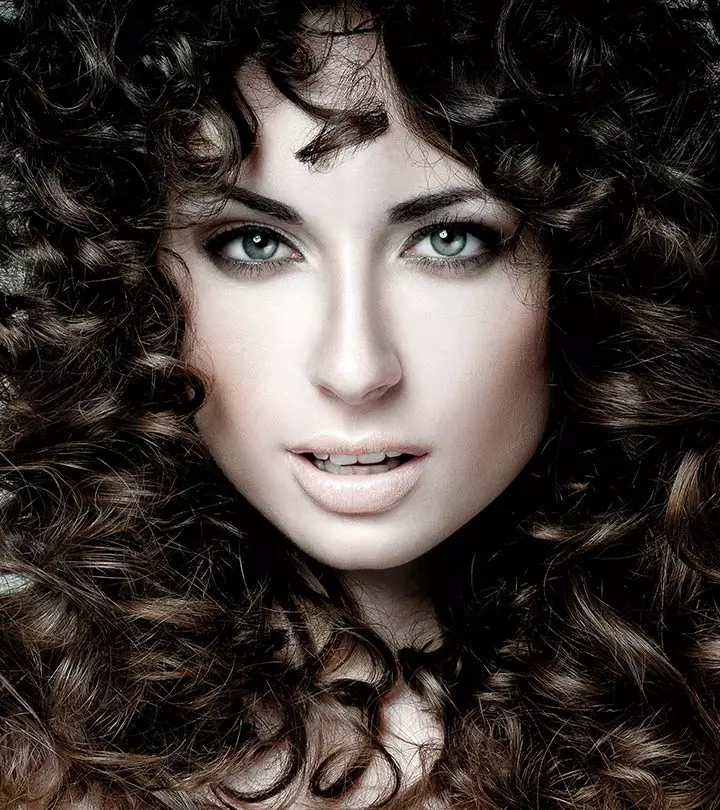
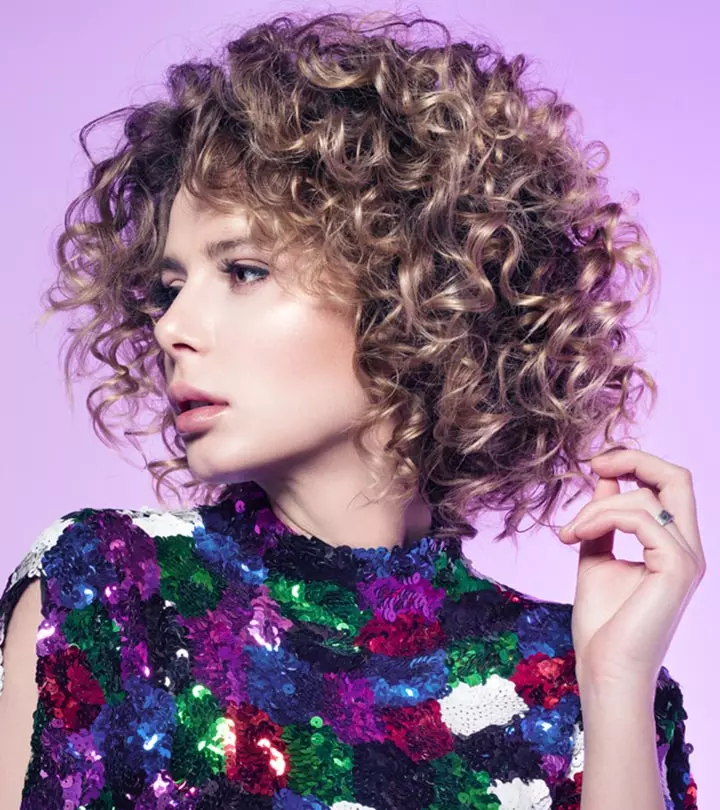
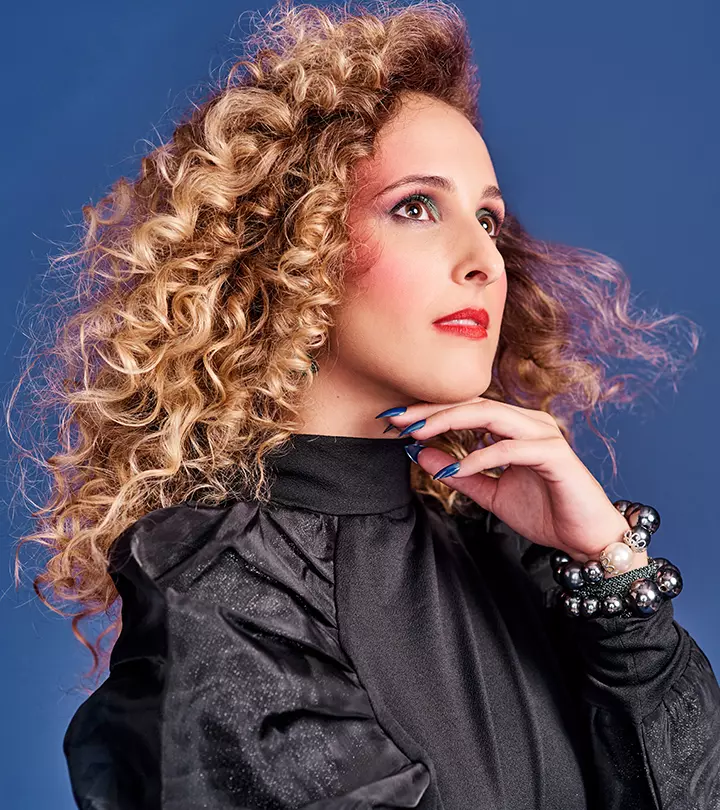
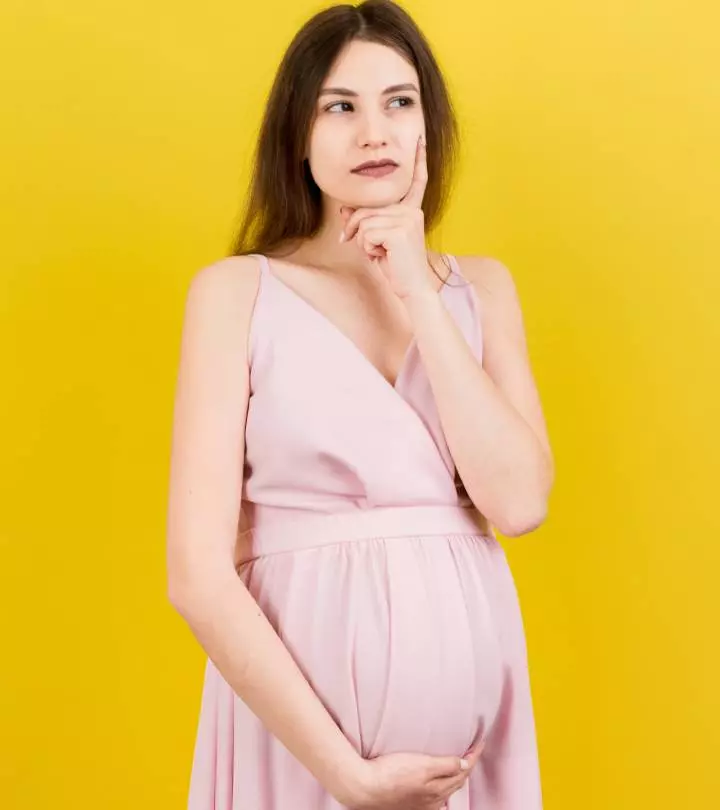
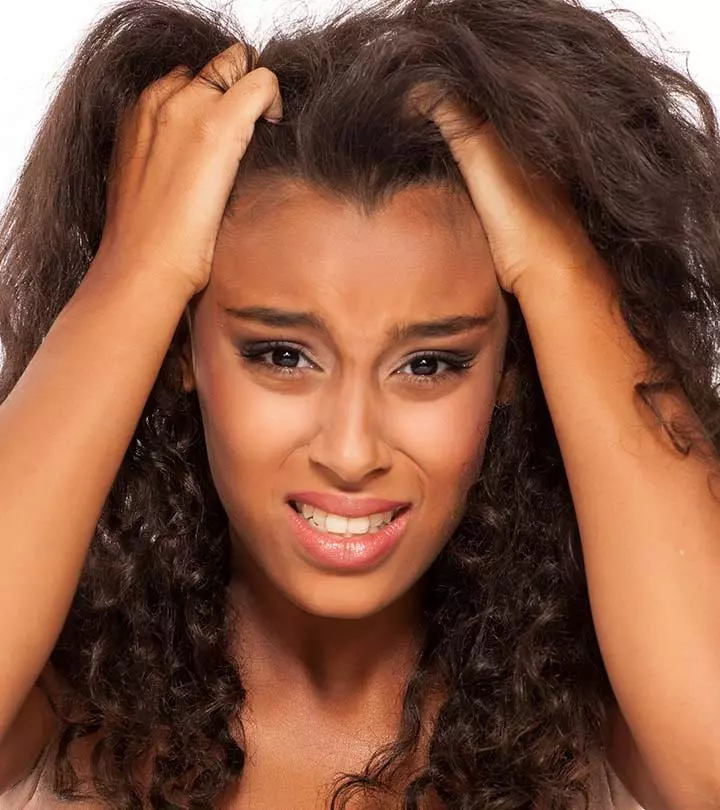
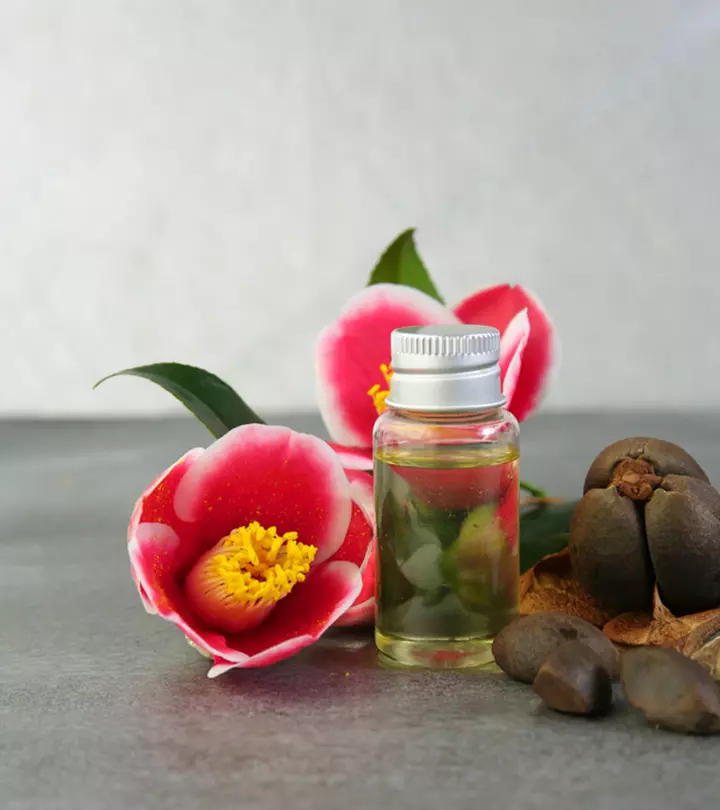

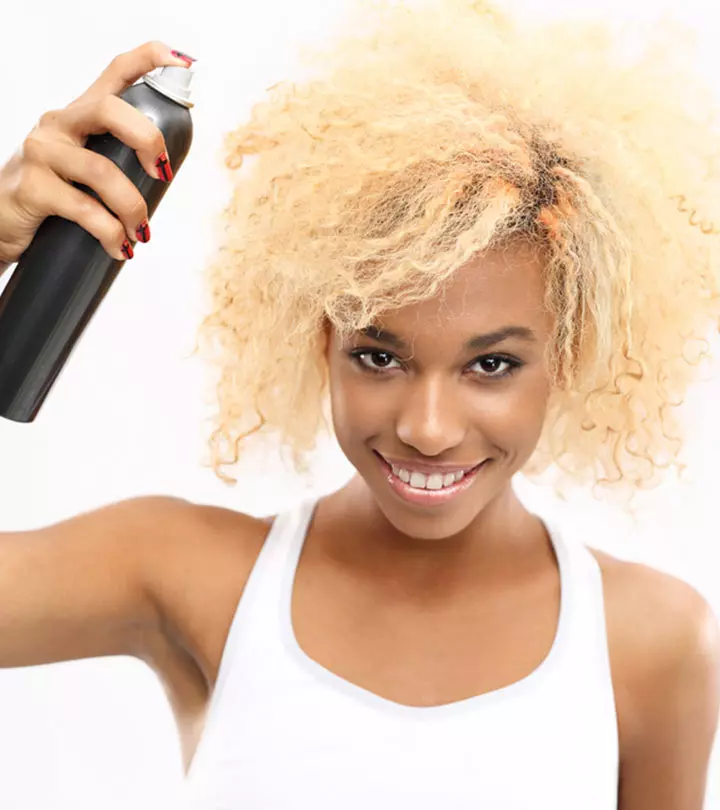

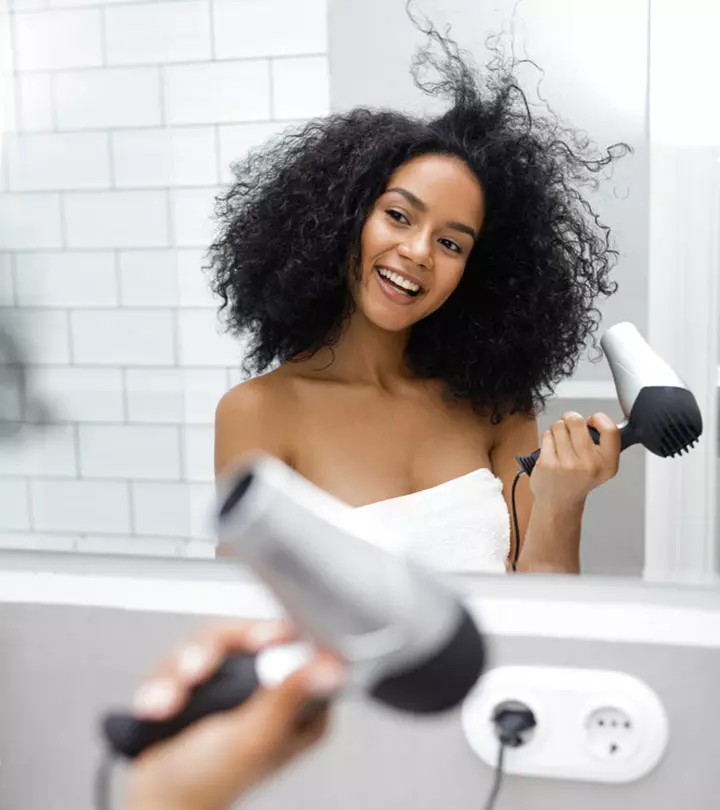
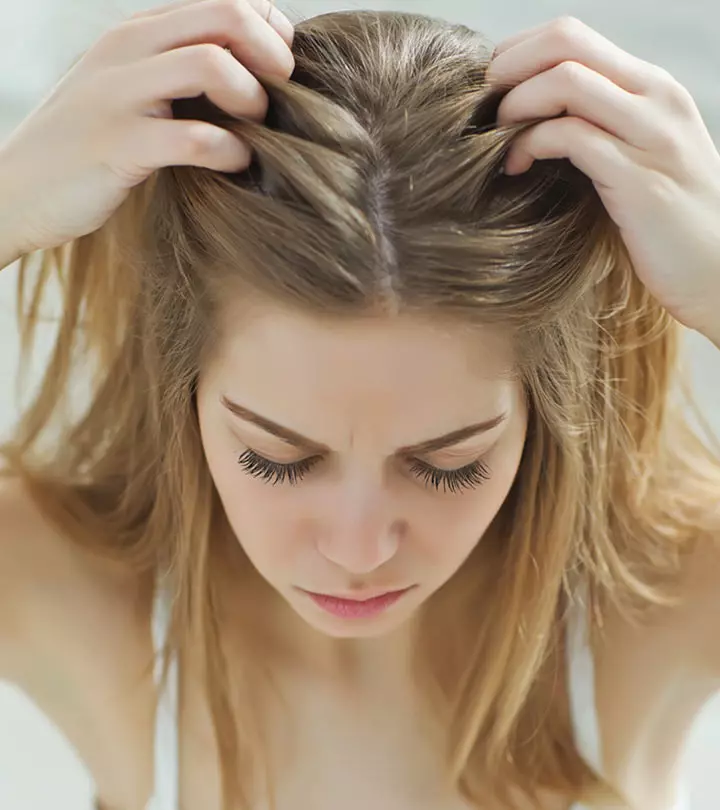

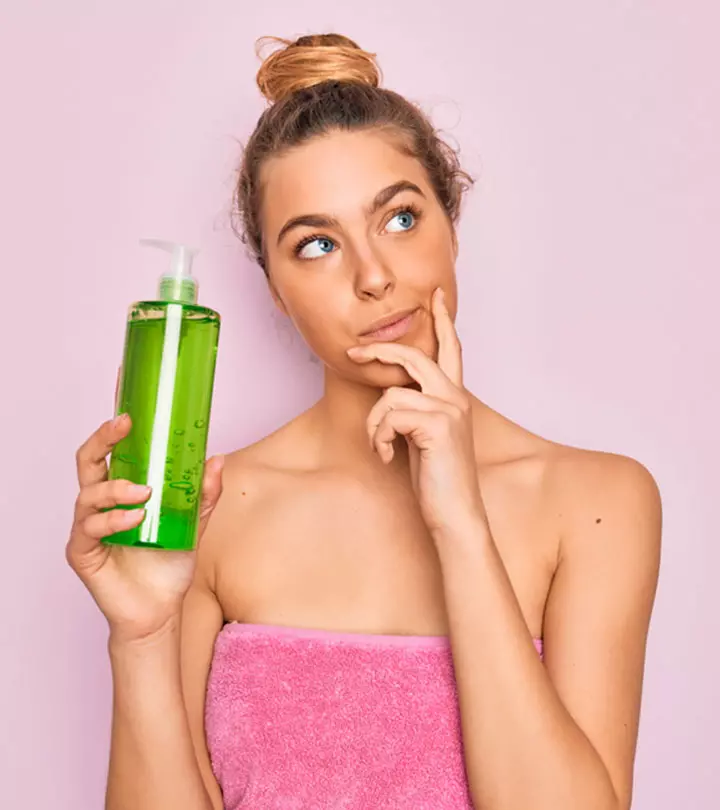
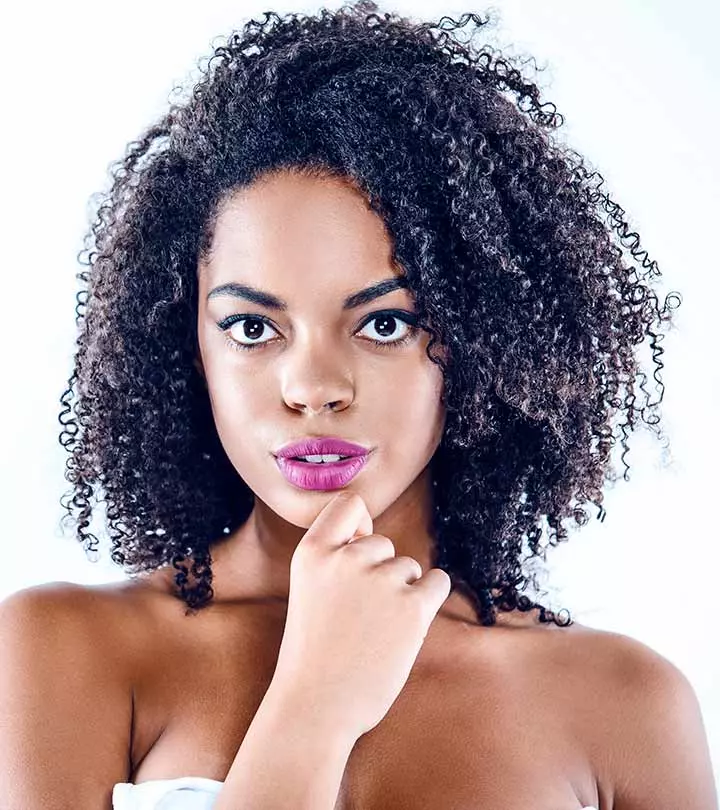
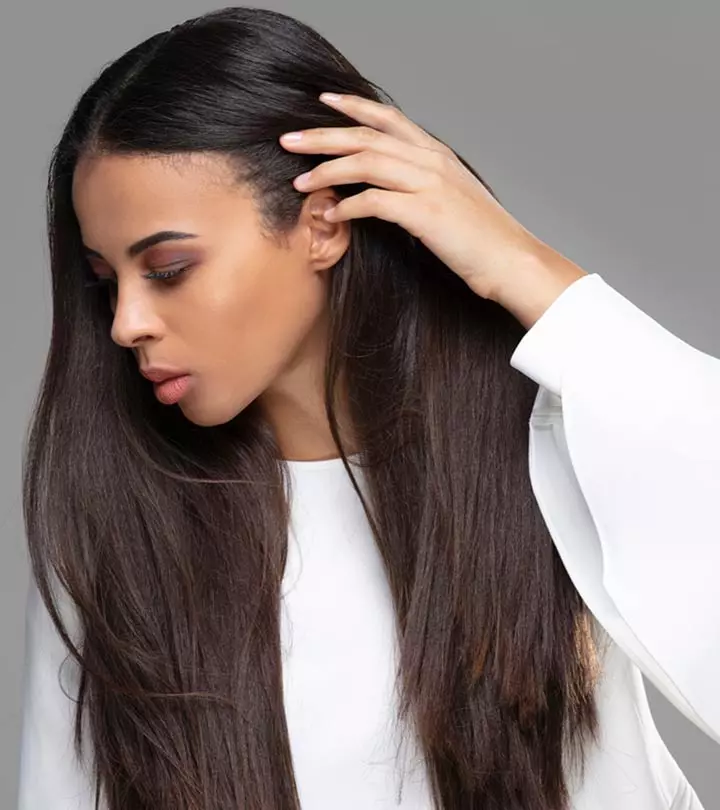
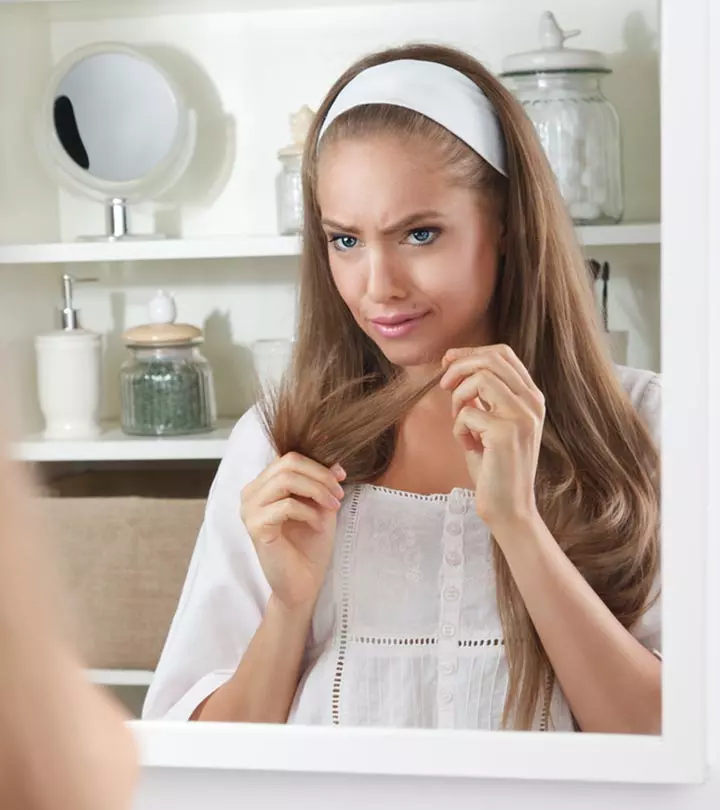
Community Experiences
Join the conversation and become a part of our empowering community! Share your stories, experiences, and insights to connect with other beauty, lifestyle, and health enthusiasts.